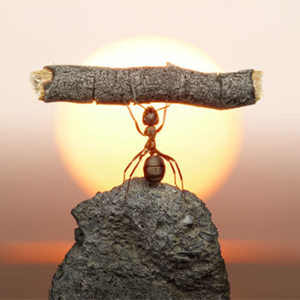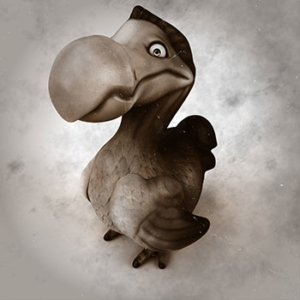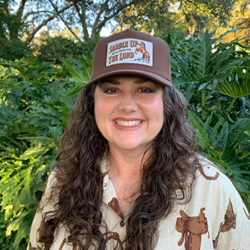 I was talking to my friend Gary the other day, ok, maybe it was more like three months ago, but who’s counting? Oh, wait, you, me, and everybody in the financial industries is counting.
I was talking to my friend Gary the other day, ok, maybe it was more like three months ago, but who’s counting? Oh, wait, you, me, and everybody in the financial industries is counting.
Perhaps my word-watchers are correct, and I need to watch my colloquialisms a bit more rigorously.
You’ll let me know, won’t you?
Anyway, Gary is my friend, which should cause you, dear reader, to neither disparage nor disregard him. He is also my cohort in discussing all things philosophical, theological, cinematic, and what advice the rest of the world really needs from the two of us. Since Gary and I are both married (to different people, don’t make this weird), he and I each need to be reassured that the world does need our advice.
See James Thurber for more marital insights. It’s good to have buddies with a particular sardonic view of the world and our place in it.
Anyhow, Gary told me that much of my writing reminds me of the story, The Ant and the Grasshopper. The Ant and the Grasshopper is one of Aesop’s Fables, of course, and is entirely different than The Ant and The Aardvark, which is a classic in its own right. It aired along with the Pink Panther cartoons and featured John Byner impersonating Joey Bishop as the nameless blue Aardvark and Dean Martin as Charlie, the red Ant. It was perhaps the zenith of Western TV culture. You are most welcome for the trip down memory lane.
 Anyhoo, before we talk about The Ant and the Grasshopper I also need to let you know my friend Elizabeth reminded me that my twin granddaughters each needed a book on the occasion of their ninth birthdays (it is only one day, but it’s two kids so “birthdays” needs to be plural correct? I don’t want you turning the tables on the self-appointed grammar police today.
Anyhoo, before we talk about The Ant and the Grasshopper I also need to let you know my friend Elizabeth reminded me that my twin granddaughters each needed a book on the occasion of their ninth birthdays (it is only one day, but it’s two kids so “birthdays” needs to be plural correct? I don’t want you turning the tables on the self-appointed grammar police today.
Elizabeth reminded me that kids, regardless of age, need to be given one book on every gift-giving occasion. I thought this a pearl of wisdom worth sharing, so there you go. Let’s tie a couple of these strands together and suggest you give your kids a copy of Aesop’s Fables if they don’t have their own already. And yes, there is something in the fables of long ago that will be offensive to the modern worldview, but perhaps we can have the kids put down the electronics for a bit to discuss wisdom, fables and morals, and tolerance in appropriate measure. Or not. But regardless, the Ant and the Grasshopper is a short read, as most of Aesop’s Fables are. I encourage you to take a moment and enjoy. It is undoubtedly a fable for all times, and for our times, isn’t it?
 Several institutions in America offer retirement pensions for their workers, but other than teaching, civil, and government service, pensions have largely gone the way of the dodo bird. We have seen too many waaaaaaaayyyy underfunded private-sector pension plans that have reduced benefits and crippled retirement plans, haven’t we? I have one of those pensions myself – the monthly retirement benefit is now frozen at about 1/5th of the promised rate and with no future increases for inflation adjustments to boot. But there is some good news. The separate executive pension plan was/is well funded and on track to meet its payouts. No, I was not an executive.
Several institutions in America offer retirement pensions for their workers, but other than teaching, civil, and government service, pensions have largely gone the way of the dodo bird. We have seen too many waaaaaaaayyyy underfunded private-sector pension plans that have reduced benefits and crippled retirement plans, haven’t we? I have one of those pensions myself – the monthly retirement benefit is now frozen at about 1/5th of the promised rate and with no future increases for inflation adjustments to boot. But there is some good news. The separate executive pension plan was/is well funded and on track to meet its payouts. No, I was not an executive.
Our friend, the Grasshopper, is perhaps analogous to those folks who counted on pensions and social security. If we extrapolate to our society today, the Grasshopper won’t starve, as maybe the fable suggests and has been likely true of most cultures throughout history, but he won’t have any extra income in the years ahead for buying new violin strings. And if he doesn’t “fit” into the right mindset and mental health condition status that can survive in our government’s subsidy system, he may starve indeed.
So, yes, we are the ants.
We have labored, and are still laboring, to fill our day with honest industry whether still employed or retired.
We continue to live within our means and hope for a bright future for our children while preparing for challenges and pitfalls. We continue to live with charitable hearts and be cheerful givers (I’m working on the cheerful part…it’s a process for me), and wise in giving of dollars, wisdom, and tolerance.
The thing I like most about the ants at the end of the story is much like the story I have heard about St. Augustine, the theologian. Supposedly, when he was working in his garden, a passerby stopped and asked, “Augustine, if you knew the world would end tomorrow, what would you do the rest of today?”
“Finish planting the row.” He answered.
And the ants, they keep working.
June 2021




